May 16, 2025 | 00:48 GMT +7
May 16, 2025 | 00:48 GMT +7
Hotline: 0913.378.918
May 16, 2025 | 00:48 GMT +7
Hotline: 0913.378.918
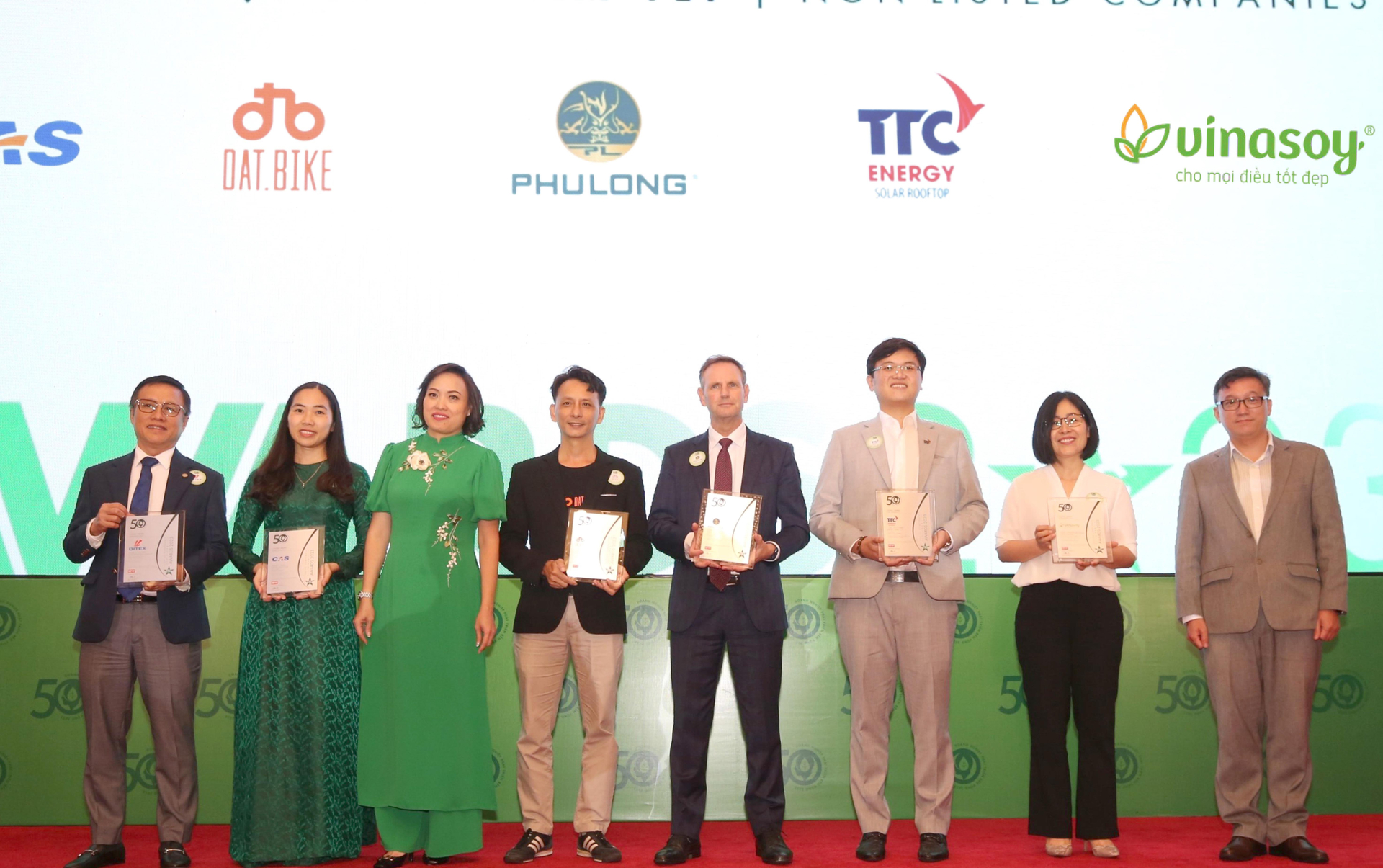
Vinasoy was honoured with the Top 50 Corporate Sustainability Award 2023
Specifically, Vinasoy was highly appreciated by the Appraisal Council consisting of domestic and international experts on sustainable development and circular economy development. The business was highly appreciated in building long-term benefits for the environment, especially the soil environment in raw material areas.
The recognition of the Award Appraisal Council has proven that the choice of developing nutritional products and raw materials associated with soybeans for the past 26 years is the right strategy for Vinasoy. The reason is derived from long-term and sustainable value for partners and the environment. As a result, Vinasoy was honoured in the category of "Optimizing Sustainable Materials".
With strategic thinking, Vinasoy established the Vinasoy Soybean Applied Research Center (VSAC) more than 10 years ago, laying the foundation for building sustainable soybean agriculture. Currently, the Center owns the genetic resources of 1,533 soybean seed lines.
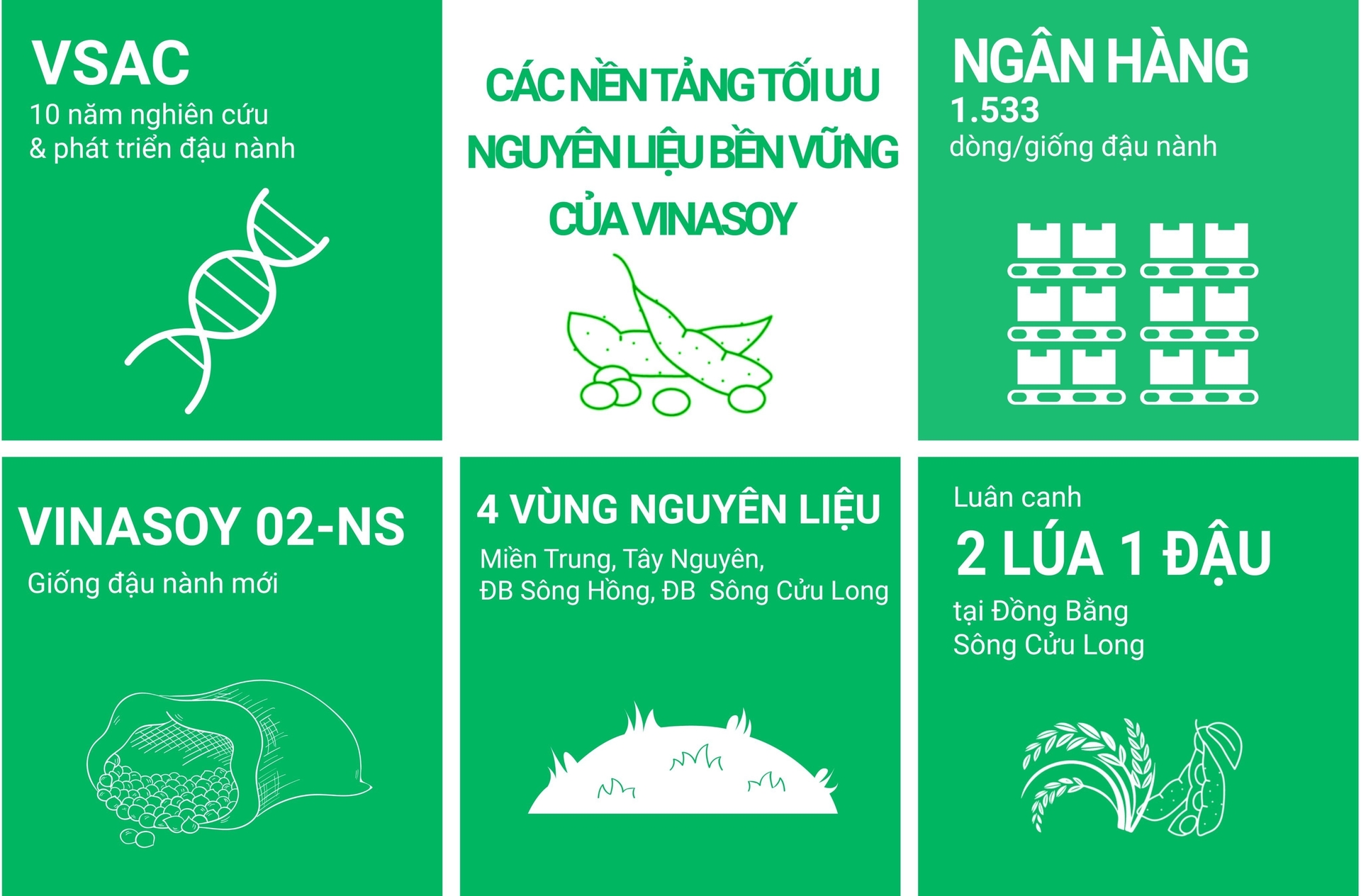
The initial achievements of Vinasoy in the effort of sustainable development of the raw material area.
The non-GMO soybean variety Vinasoy 02-NS of Vinasoy has been protected by MARD. They are mass-grown on an area of 200 ha in the Central Highlands, Mekong Delta and Central regions.
Ms Ha Thi Lan Huong, Director of Corporate Communications of Vinasoy, shared “Being honoured in the Top 50 Corporate Sustainability Award 2023 is a recognition of Vinasoy's past efforts. This creates strong confidence for the company and its partners in practising sustainable development, contributing to the realization of Vietnam's sustainable development goals".
Vinasoy is the leading soy milk producer in the country, accounting for 90% of the market share of paper-canned soy milk. The Company defines and practices ESG (Environment - Society - Governance) criteria for all actions and goals in business, including environmental sustainability, social responsibility and corporate governance.
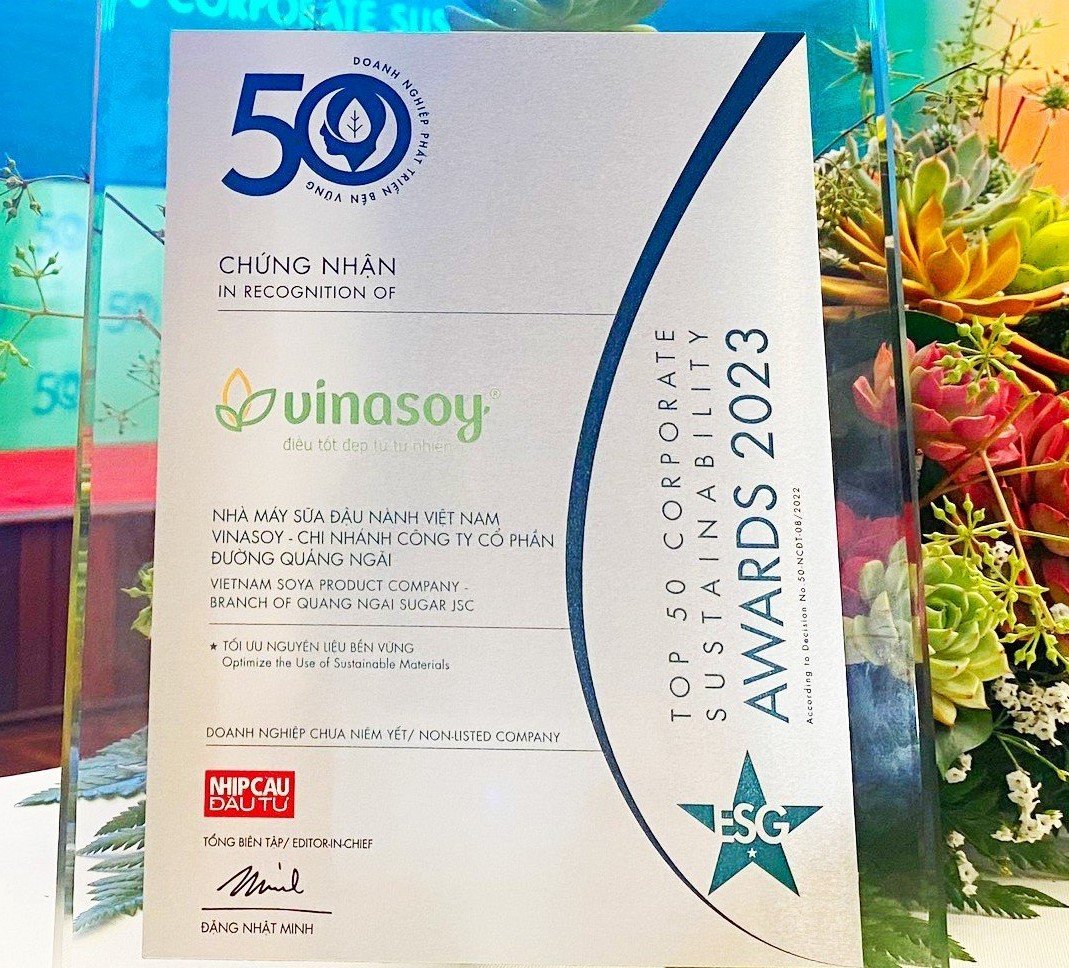
Certificate of Top 50 Corporate Sustainability Award 2023 of Vinasoy.
Vinasoy currently has 3 soy milk factories in Bac Ninh, Quang Ngai and Binh Duong provinces with a total capacity of more than 390 million l/year and is in the Top 5 largest soy milk manufacturers in the world.
According to agricultural experts, the habit of cultivating a food crop continuously for a long time will cause the soil to degrade, creating more and more pests and diseases harmful to agro-products.
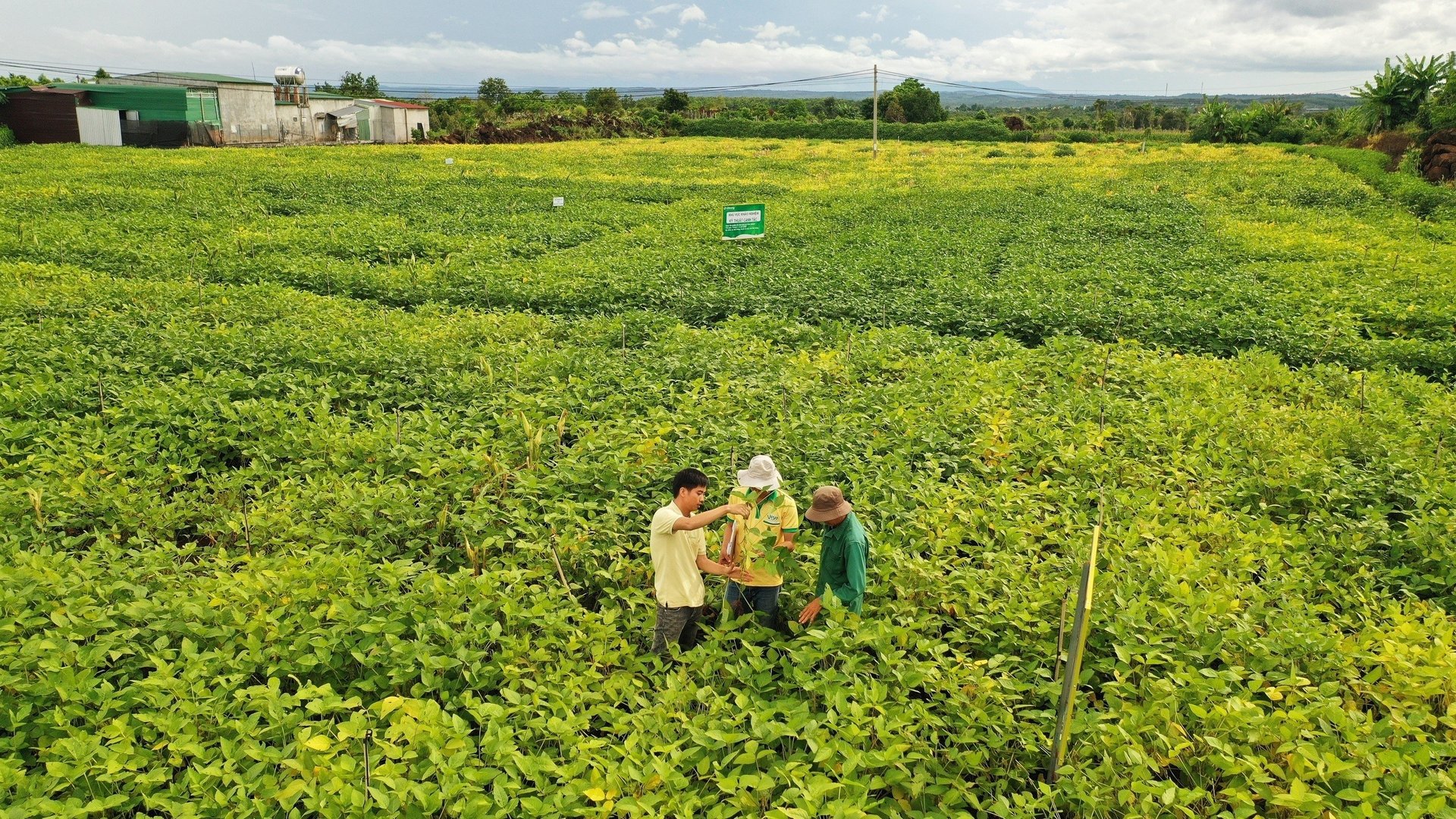
A high-yielding soybean field from the association between Vinasoy and farmers.
Therefore, in the past time, VSAC cooperated with farmers to rotate soybean crops on rice land in the Mekong Delta. This help farmers to optimize economic efficiency on an area of land (not leaving planting land empty), and increase soil fertility thanks to the protein-rich nodules of soybeans.
In the Central Highlands growing area, where there is more than 150 ha of soybean varieties of Vinasoy 02-NS, many farmers receive technical support from Vinasoy with varieties planted in rotation, intercropping soybeans with other perennial crops such as dragon fruit, coffee, cashew, avocado...
Vinasoy's strategy of optimizing sustainable raw materials is considered one of the strong efforts of the business to contribute to the commitment of the Government of Vietnam to reduce net emissions to "zero" (Net Zero) in 2050.
Translated by Hoang Duy

(VAN) Use of high-quality broodstock and biotechnology is regarded as the most effective approach to ensuring sustainable and economically viable shrimp aquaculture ahead of climate change and the emergence of increasingly intricate disease patterns.

(VAN) Carbon farming is a form of agricultural practices that helps absorb more greenhouse gases than it emits, through smart management of soil, crops, and livestock.

(VAN) This is a key content of the Memorandum of Understanding recently signed between the Vietnam Fisheries Society and Kunihiro Inc of Japan.

(VAN) To achieve the goal, local authorities and businesses in Kon Tum province have fully prepared the necessary conditions for the new Ngoc Linh ginseng planting season.
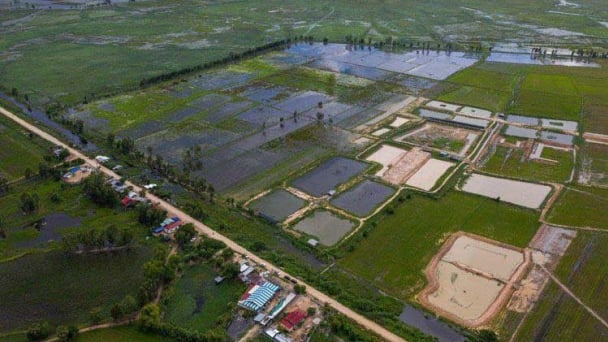
(VAN) Jiangsu province is gearing up to host training programs in Phnom Penh, the capital of Cambodia, this year to establish the Fish and Rice Corridor.
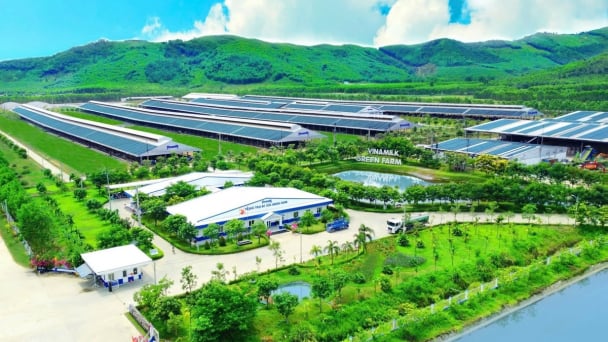
(VAN) Le Hoang Minh, representing Vinamilk, shared the company's experience in energy saving and green energy transition for production at a workshop held during the P4G Summit.
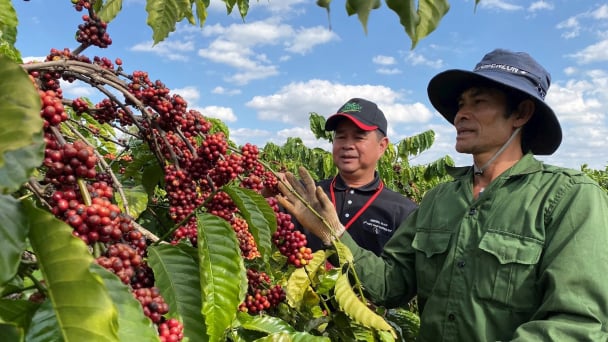
(VAN) Businesses emphasize fairness and equality when integrating social factors into their sustainable development strategies.